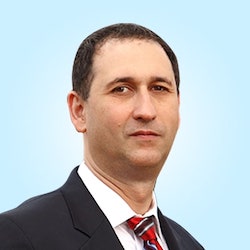Civility and Professionalism are hallmarks of the legal profession. This seminar will discuss civility throughout the ages of the legal profession, current initiatives, and ways in which you can stay civil in your practice. This seminar will go through real-life case scenarios and how our behavior can trigger professional discipline under the Rules of Professional Conduct.
- Opening & Greeting
- A brief introduction of the speaker and an explanation of the definition of civility and professionalism
- Attorney Professionalism Throughout the Ages
- Go through history and explain how civility has not always been a part of the legal profession
- Discuss different decades and eras on how civility was viewed
- Model Rules of Professional Conduct on Civility
- Discussion of Model Rule 8.4(d)
- Discussion of Model Rule 8.4(g)
- Discussion of various other Model Rules to which attorneys may be disciplined for incivility, e.g., Rule 1.3 and Rule 1.4
- Civility With Client Relationships and Communications
- Discussion of Rule 1.2 regarding taking direction from the client
- Discussion of finding a balance between doing what a client asks and doing what is professional if they conflict
- Tips on how to communicate effectively with difficult clients
- Responding to Incivility and Best Practices
- Tips on dealing with uncivil opposing counsel and how to respond to uncivil judges
- Examples
- Discussion of 5 to 6 case studies where attorneys have been disciplined for incivility
- Discussion on what each case study attorney should have done differently
- Lessons to Take From Civility:
- Wrap-up material with how to conduct a civil practice
- Education and Training
- Questions
This webinar is divided into section summaries, which you can scan for key points and then dive into the sections that interest you the most.
Please note this AI-generated summary provides a general overview of the webinar but may not capture all details, nuances, or the exact words of the speaker. For complete accuracy, please refer to the original webinar recording.
*CLE credit is only available to Justia Connect Pros. Not a Pro? Upgrade today>>
Status: Approved
Credits: 1.00 Civility in the Legal Profession
Earn Credit Until: June 30, 2026
Status: Approved
Credits: 1.00 Legal Ethics/Professional Responsibility
Difficulty: All Levels
Earn Credit Until: December 31, 2025
Status: Approved
Credits: 1.00 Ethics
Earn Credit Until: February 28, 2026
Status: Approved
Credits: 1.00 Legal Ethics/Professional Responsibility
Earn Credit Until: June 30, 2026
This presentation is approved for one hour of Civility in the Legal Profession CLE credit in California, one hour of Legal Ethics/Professional Responsibility CLE credit in South Carolina (all levels), and one hour of Ethics CLE credit in North Carolina. This course has been approved for Minimum Continuing Legal Education credit by the State Bar of Texas Committee on MCLE in the amount of 1.00 credit hours, of which 1.00 credit hours will apply to Legal Ethics/Professional Responsibility credit.
Justia only reports attendance in jurisdictions in which a particular Justia CLE Webinar is officially accredited. Lawyers may need to self-submit their certificates for CLE credit in jurisdictions not listed above.
Note that CLE credit, including partial credit, cannot be earned outside of the relevant accreditation period. To earn credit for a course, a lawyer must watch the entire course within the relevant accreditation period. Lawyers who have viewed a presentation multiple times may not be able to claim credit in their jurisdiction more than once. Justia reserves the right, at its discretion, to grant an attendee partial or no credit, in accordance with viewing duration and other methods of verifying course completion.
At this time, Justia only offers CLE courses officially accredited in certain states. Lawyers may generate a generic attendance certificate to self-submit credit in their own jurisdiction, but Justia does not guarantee that lawyers will receive their desired CLE credit through the self-submission or reciprocity process.

Cari Sheehan is a Conflicts Attorney with Scopelitis, Garvin, Light, Hanson & Feary, P.C. She plays a pivotal role in guiding attorneys through the complex landscape of legal ethics. She identifies and resolves conflicts of interest, ensuring that the Firm's operations remain ethically sound. Her responsibilities also extend to coordinating the resolution of any legal ethical issues that arise, requiring her to have an in-depth understanding of legal ethics and a keen ability to navigate intricate situations. She also implements protocols and procedures that are in strict accordance with the applicable rules of professional conduct. Read More ›


